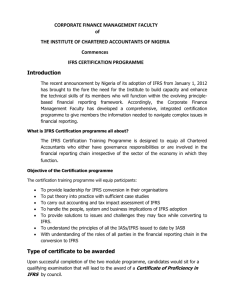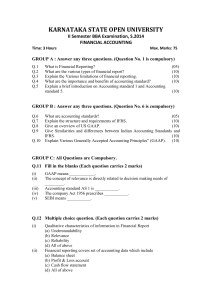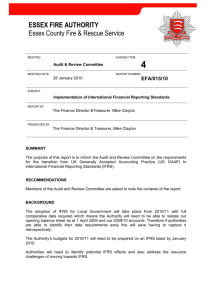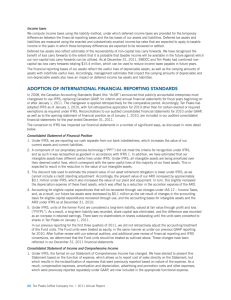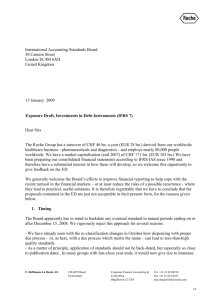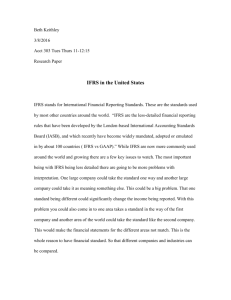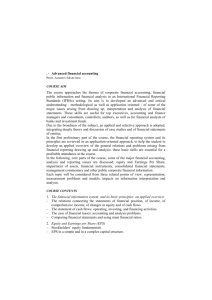US oil firms urged to prep for international reporting standards
advertisement
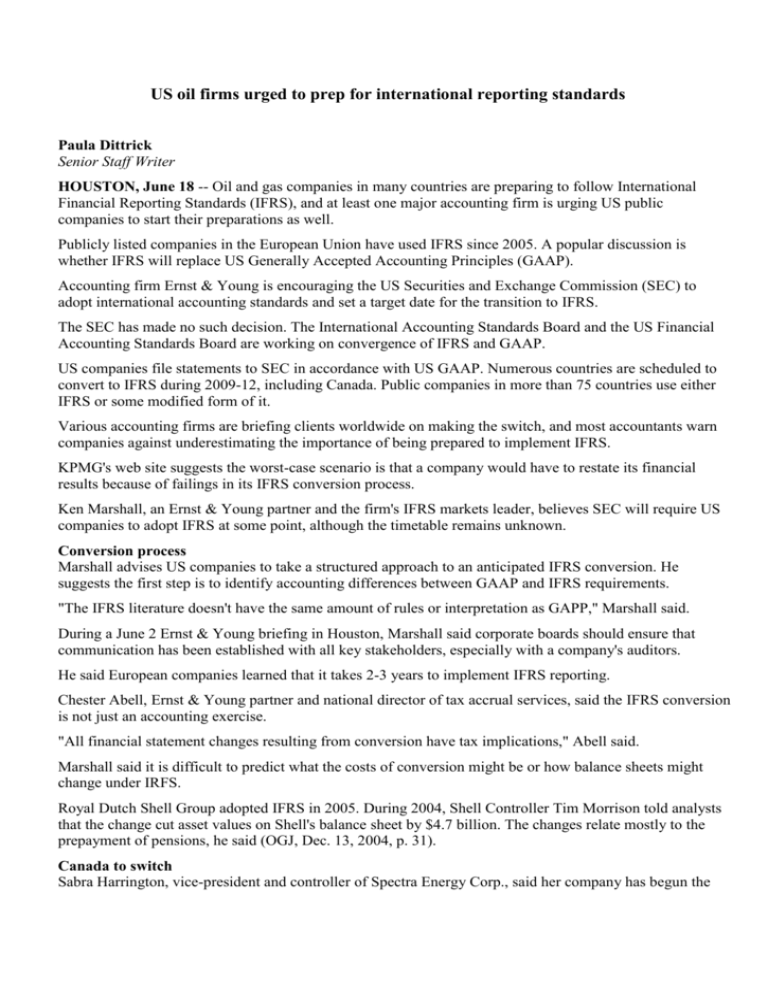
US oil firms urged to prep for international reporting standards Paula Dittrick Senior Staff Writer HOUSTON, June 18 -- Oil and gas companies in many countries are preparing to follow International Financial Reporting Standards (IFRS), and at least one major accounting firm is urging US public companies to start their preparations as well. Publicly listed companies in the European Union have used IFRS since 2005. A popular discussion is whether IFRS will replace US Generally Accepted Accounting Principles (GAAP). Accounting firm Ernst & Young is encouraging the US Securities and Exchange Commission (SEC) to adopt international accounting standards and set a target date for the transition to IFRS. The SEC has made no such decision. The International Accounting Standards Board and the US Financial Accounting Standards Board are working on convergence of IFRS and GAAP. US companies file statements to SEC in accordance with US GAAP. Numerous countries are scheduled to convert to IFRS during 2009-12, including Canada. Public companies in more than 75 countries use either IFRS or some modified form of it. Various accounting firms are briefing clients worldwide on making the switch, and most accountants warn companies against underestimating the importance of being prepared to implement IFRS. KPMG's web site suggests the worst-case scenario is that a company would have to restate its financial results because of failings in its IFRS conversion process. Ken Marshall, an Ernst & Young partner and the firm's IFRS markets leader, believes SEC will require US companies to adopt IFRS at some point, although the timetable remains unknown. Conversion process Marshall advises US companies to take a structured approach to an anticipated IFRS conversion. He suggests the first step is to identify accounting differences between GAAP and IFRS requirements. "The IFRS literature doesn't have the same amount of rules or interpretation as GAPP," Marshall said. During a June 2 Ernst & Young briefing in Houston, Marshall said corporate boards should ensure that communication has been established with all key stakeholders, especially with a company's auditors. He said European companies learned that it takes 2-3 years to implement IFRS reporting. Chester Abell, Ernst & Young partner and national director of tax accrual services, said the IFRS conversion is not just an accounting exercise. "All financial statement changes resulting from conversion have tax implications," Abell said. Marshall said it is difficult to predict what the costs of conversion might be or how balance sheets might change under IRFS. Royal Dutch Shell Group adopted IFRS in 2005. During 2004, Shell Controller Tim Morrison told analysts that the change cut asset values on Shell's balance sheet by $4.7 billion. The changes relate mostly to the prepayment of pensions, he said (OGJ, Dec. 13, 2004, p. 31). Canada to switch Sabra Harrington, vice-president and controller of Spectra Energy Corp., said her company has begun the conversion process because IFRS is going to be required in Canada by Jan. 1, 2011. "It's taking longer than we thought, and it's fairly complex," Harrington said. "It's not black and white. There are decisions to be made." The deadline requires comparative IFRS 2010 data to be included in 2011 financial reports, she said. Meanwhile, Spectra also must comply with US GAAP reporting. "We think we are going to end up with multiple sets," of reporting accounts, Harrington said. Spectra Energy reports to the Ontario Energy Board, Canada's National Energy Board, and US government agencies. Harrington said Spectra's anticipated IFRS conversion will involve companywide training and communication. For instance, the business department will be involved with income tax planning while the information technology department figures out how many sets of records Spectra Energy's general ledger system can handle. PriceWaterhouseCoopers Canada has posted information on its web site about IFRS and the Canadian oil and gas industry. "The impact of IFRS is felt all along the oil and gas value chain, but many of the key dilemmas and judgments are greatest at the exploration and production stage," PWC said. For instance, IFRS limits full-cost accounting to exploration and evaluation activities. This differs from fullcost accounting as applied under Canadian GAAP. The US SEC allows the use of either full cost or successful efforts accounting for oil and gas activities. "Companies beyond the exploration and evaluation stage using full cost accounting will have significant hurdles to overcome in respect of identifying and tracking individual cash-generating units by which to assess impairment and calculate depletion expense," PWC said. Oil and gas companies making the transition to IFRS also need to consider other differences, such as production-sharing arrangements, royalties, and excise taxes. IFRS criticized Michael Starkie, chief accountant for BP PLC, wrote a letter to the Financial Times in which he called IFRS "unhelpful." Starkie said he wrote the letter in a personal capacity. He is a member of the European Financial Reporting Advisory Group Technical Expert Group. "Recent years have seen major changes in the topography of accounting standards," Starkie wrote. "What a wasted opportunity then, that the current body of IFRS is so unhelpful for the markets when the accounting world was given this historic opportunity to create something that should have been useful for markets." He called upon the International Accounting Standards Committee's Foundation to "reconstitute the board," saying the IASB "continues to develop an accounting model about which users of financial information have grave misgivings." Contact Paula Dittrick at paulad@ogjonline.com. To access this article, go to: http://www.ogj.com/articles/article_display.cfm?ARTICLE_ID=332078&p=7
